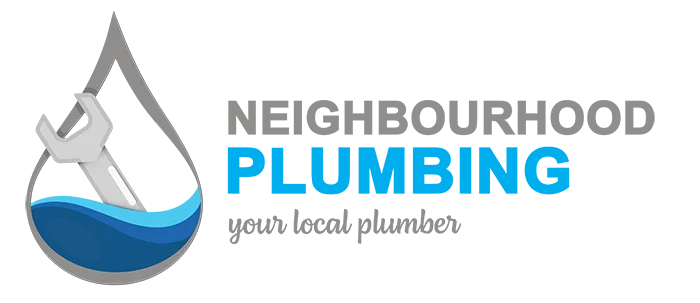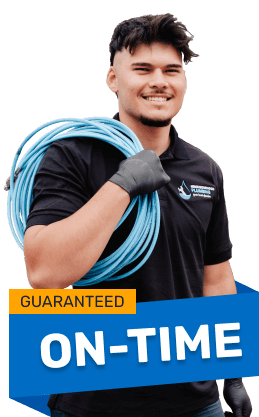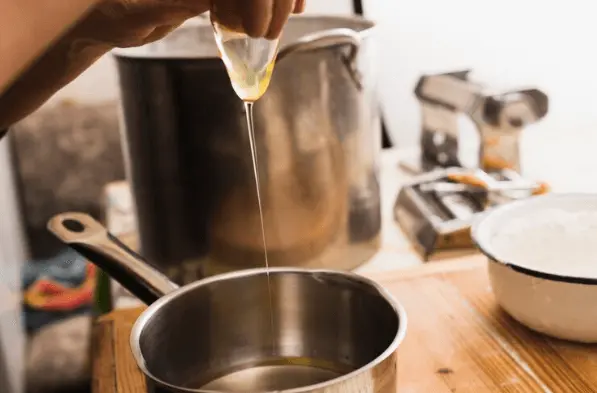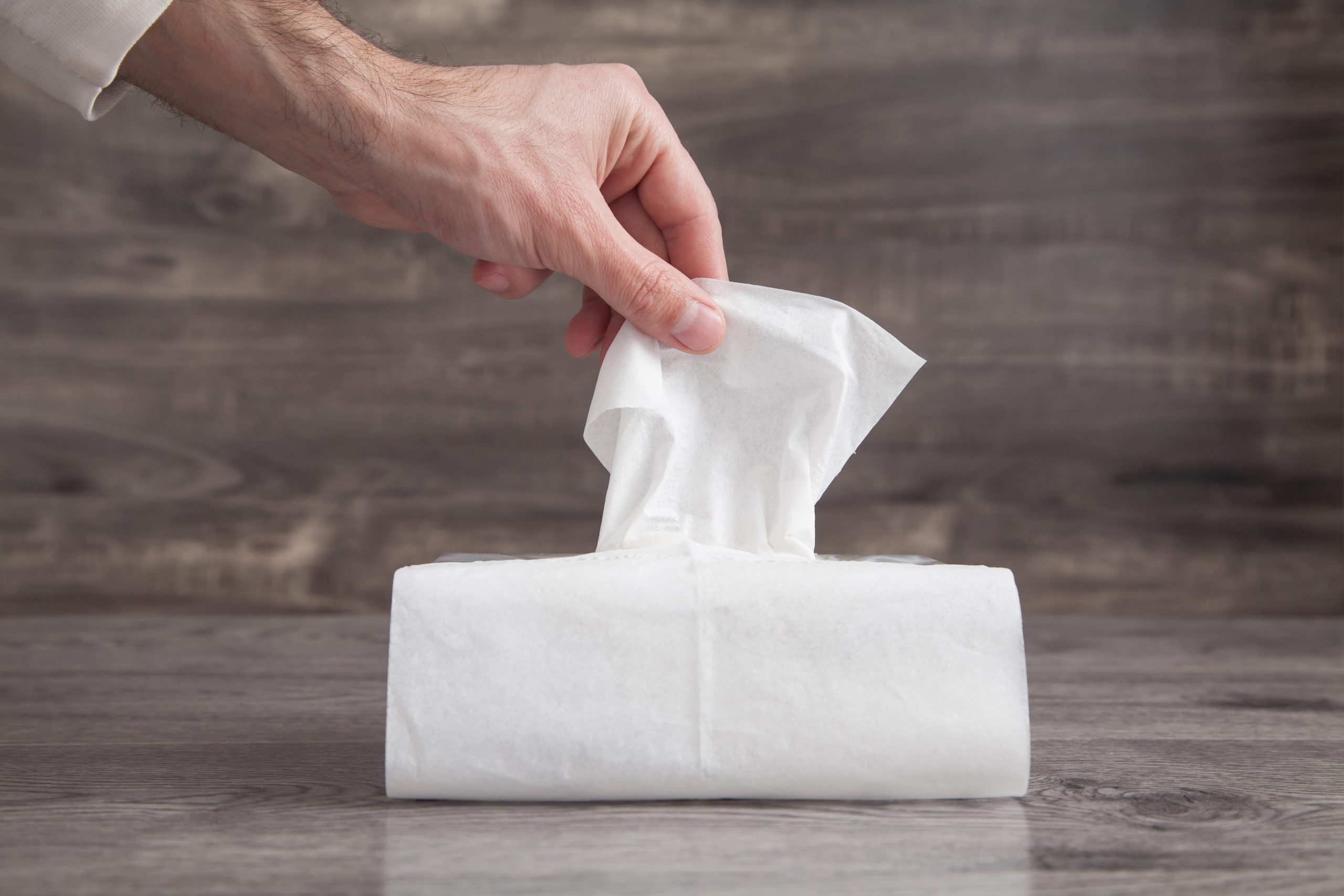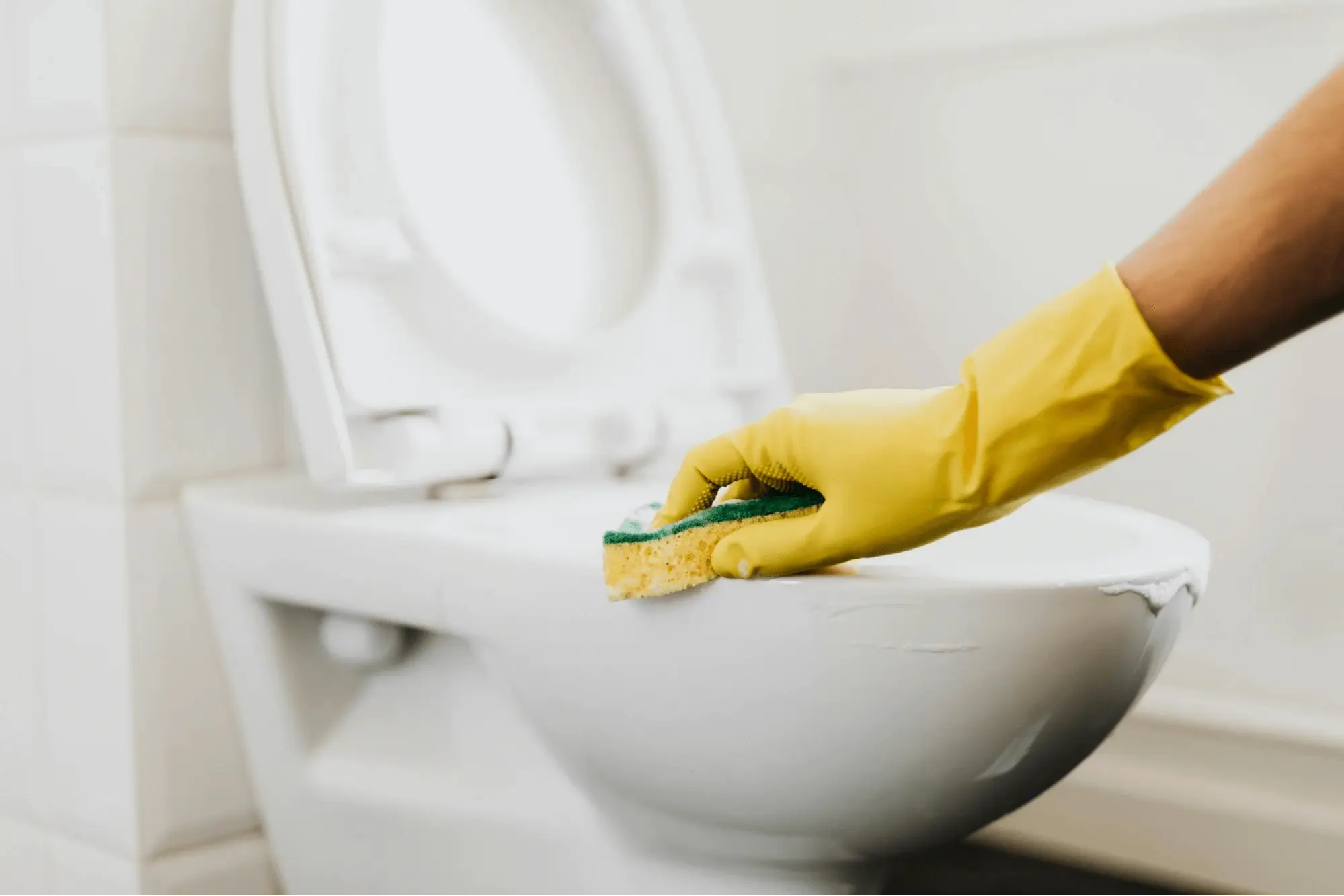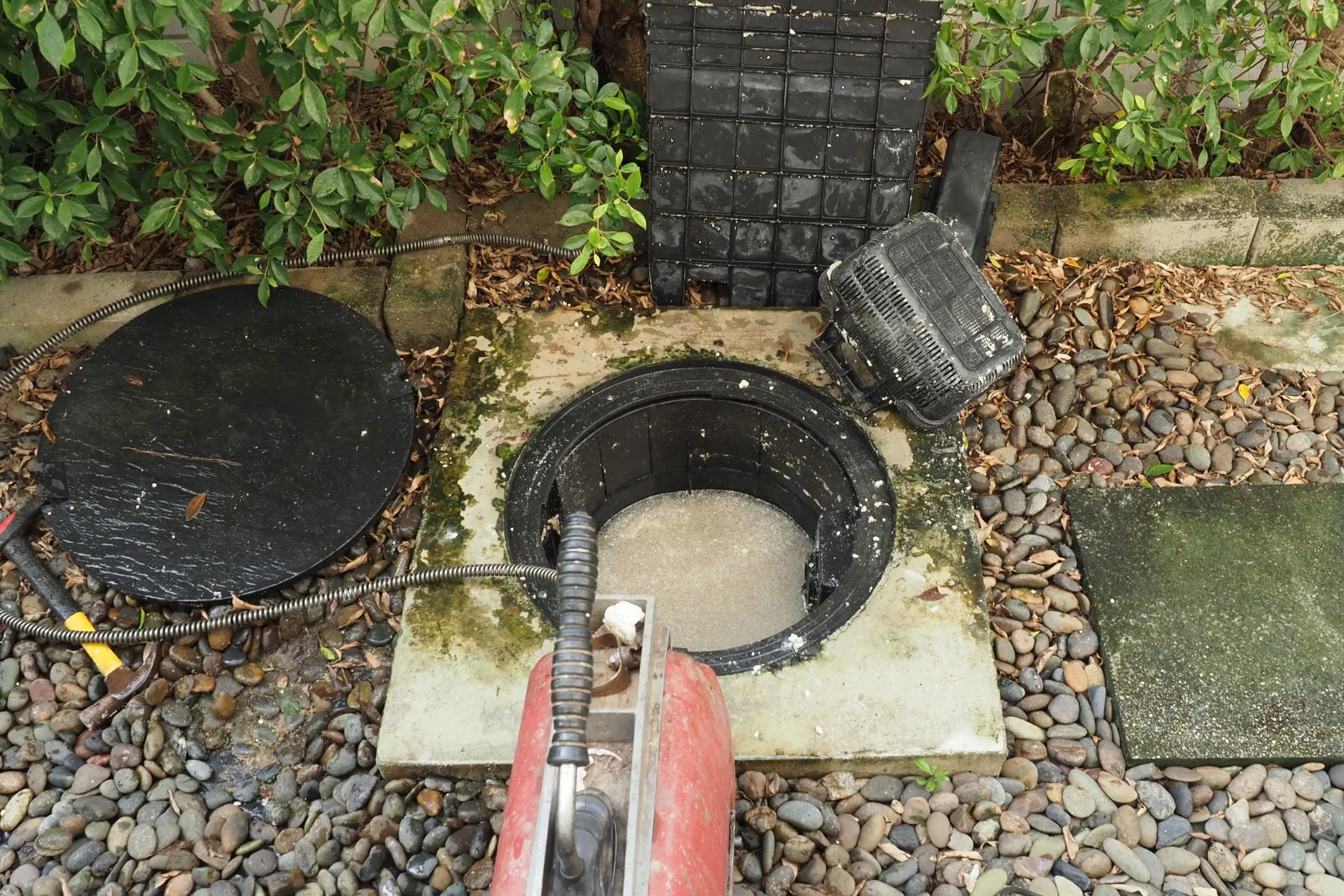
Blocked drains are menace, indeed. You probably have the signs of blocked drains tattooed in your head. Or, you even already master how to prevent a blocked drain.
But, how about a blocked sewer pipe? You can say, it’s a similar problem, but on the next level. A blocked sewage drain is not visible to the eyes, and that’s exactly the problem.
Hence, in this post, we’ll explore the signs of blocked sewer pipe. In no time, you’ll master how to unblock sewer pipes. Resolving the issue without the help of Melbourne plumbing service is no longer impossible!
5 Signs of a Blocked Sewer Pipe
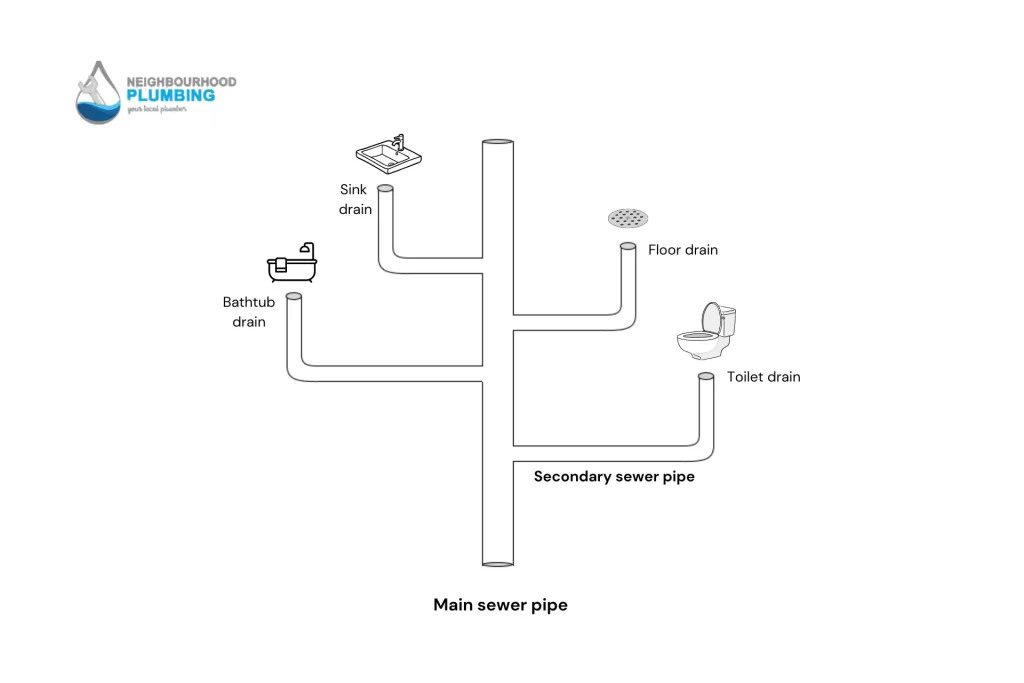
Before actually learn how to tackle the blocked sewers line, let’s delve into the signs that should be your warnings:
1. Water Backing Up from Multiple Drains
When water backs up from multiple drains, it indicates a blockage in the main sewer line. All the drains in your home are connected to the sewer system through a network of pipes.
These pipes act like branches of a tree, converging into a main sewer line that eventually connects to the communal sewer.
If there’s a blockage in the main sewer line, water has nowhere to go and backs up into the house through multiple drains, such as sinks, showers, and toilets.
2. Drains Running Slowly Across the House
Normally, wastewater flows smoothly from individual drains through secondary pipes to the main sewer line. When the main sewer line gets blocked, the entire system slows down. This results in slow drainage from multiple fixtures because the water can’t flow freely through the clogged pipe.
3. Nasty Smells Coming from the Drains
Sewage has a distinctive, foul odour. If you notice this smell wafting up from multiple drains, it means the waste isn’t flowing away properly. This is a strong indicator of a sewer line blockage.
4. Sewage Pooled in the Cleanout
The cleanout is an access point in your plumbing system designed for clearing blockages. If you notice sewage pooling around the cleanout, it indicates a blockage in the main sewer line.
This happens because the sewage can’t move past the blockage, so it escapes through the cleanout.
5. Drains Getting Blocked Recurrently
Frequent blockages occur because the main line is partially obstructed, causing waste and water to build up repeatedly.
Each time you clear a drain, the underlying problem in the sewer line causes another blockage, creating a cycle of recurring issues that requires professional attention to resolve.
7 Methods to Unclog a Sewer Pipe
Dealing with a blocked sewer pipe can be frustrating, but there are several methods to get things flowing smoothly again. Here’s a guide to help you choose the best approach.
1. Using a Plumber Service
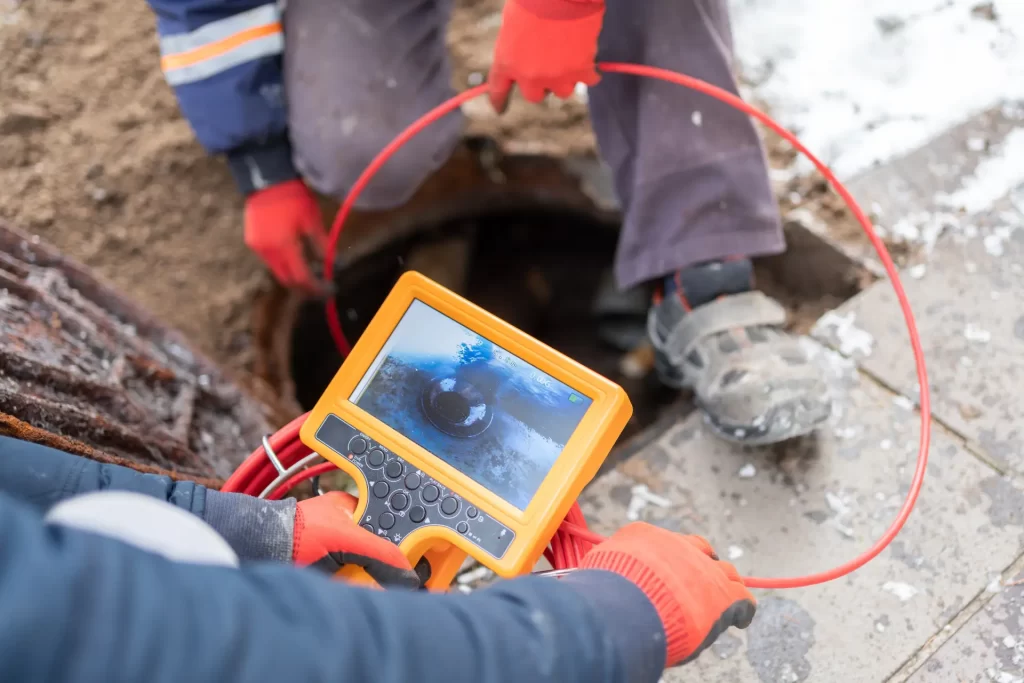
Hiring a professional plumber is often the most reliable way to deal with a stubborn sewer blockage. Plumbers have the expertise and equipment to diagnose and fix the issue efficiently. The sewerage blockage removal will be less-messy and time-consuming.
They might use high-powered tools, such as hydro-jetters or specialised cameras, to locate and clear the blockage. Although this option can be more expensive, it saves you the hassle and ensures the problem is resolved correctly.
2. Using a Wet and Dry Vacuum
A wet and dry vacuum can be an excellent tool for unclogging a sewer line. First, create a tight seal over the drain using the vacuum hose. Switch the vacuum to the liquid setting and turn it on to suck out the blockage.
This method works best for minor clogs caused by debris like hair or small objects. Ensure you wear protective gear to avoid contact with any unpleasant waste materials.
3. Using Caustic Cleaners
Caustic cleaners are strong chemical solutions that can dissolve blockages in your sewer line. Pour the cleaner directly into the drain and let it sit for the recommended time. These cleaners break down grease, hair, and other stubborn materials.
However, use them sparingly and follow the instructions carefully, as they can be harmful to your pipes and the environment.
4. Using Natural Cleaners
If you prefer a more eco-friendly approach, enzyme-based natural cleaners can be quite effective. These cleaners use natural enzymes to break down organic materials like grease, hair, and food particles. Pour the enzyme cleaner into the drain and let it sit for the recommended time, usually overnight.
This method is safe for your pipes and reduces the risk of exposure to harsh chemicals, making it a great option for regular maintenance.
5. Using a Drain Snake
A drain snake, or plumber’s auger, is a handy tool for unblocking sewer lines. Insert the snake into the drain and push it until you reach the blockage. Turn the handle to break up the clog or hook onto it, then pull it out.
Drain snakes come in various lengths and sizes, so choose one appropriate for your sewer line. This method works well for more severe blockages that simpler methods can’t handle.
6. Using a Dish Detergent
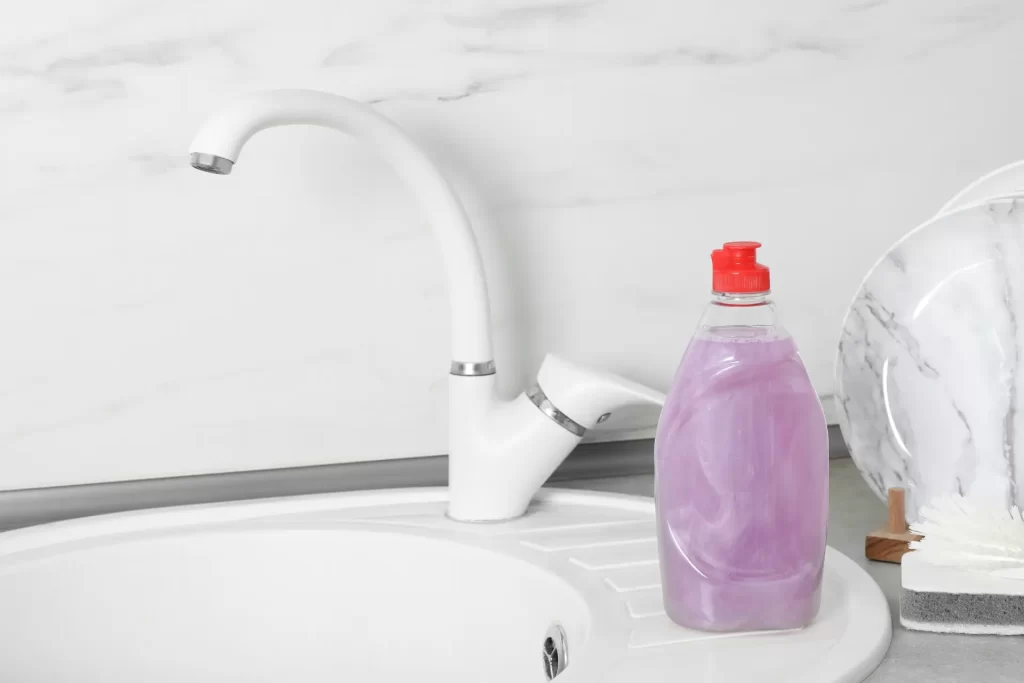
Surprisingly, dish detergent can help clear minor clogs. Pour a generous amount of dish detergent into the drain, followed by warm water. The detergent breaks down grease and oily residues, making it easier for the water to flush out the blockage.
This method is most effective for grease-related clogs and is a quick, simple solution you can try with items already in your home.
7. Using More Water Pressure
Increasing water pressure can sometimes push out a clog. You can achieve this by using a garden hose with a high-pressure nozzle. Insert the hose into the sewer line and turn on the water at full blast.
The force of the water can dislodge and wash away the blockage. Be careful not to use excessive pressure that might damage your pipes, and ensure the hose is securely positioned to avoid water splashing back.
What Happens If a Sewer Line Is Clogged?
When a sewer line is clogged, sewage and wastewater get stuck and can’t escape or release properly. This leads to water to back up into your home as they have nowhere to go.
In severe cases, it can result in sewage spills, damaging your property and posing health risks due to the bacteria and contaminants present in the wastewater.
3 Methods to Unclog a Sewer Line Without a Plumber That WE DO NOT Recommend
Yes, you read it right. There are methods we don’t recommend for some reasons. Let’s discuss it.
1. Baking Soda and Vinegar
You may have heard this DIY method a lot, but here’s why you should never use baking soda and vinegar to unclog a drain. The chemical reaction between baking soda and vinegar produces carbon dioxide and water, which creates pressure and fizzing.
The reaction can lead to oxidation, which can corrode pipes and cause cracks over time. This method can do more harm than good, especially with older plumbing systems.
2. Boiling Water
Pouring boiling water down the drain is another common DIY solution people recommend. However, this method can cause more problems than it solves. Boiling water can warp PVC pipes and cause joints to loosen, leading to leaks.
If the blocked sewage pipe is far down the drain, the boiling water might not even reach it, rendering this method ineffective. Instead of solving the problem, you might end up with damaged pipes and a still-clogged sewer line.
3. Coca-Cola and Pepsi

Some people suggest using Coca-Cola or Pepsi to unclog drains due to their acidity. While these drinks contain phosphoric acid, which can help break down some minor clogs, they are primarily designed to be consumed, not used as a drain cleaner.
The acid content in these sodas is relatively low and not strong enough to tackle significant blockages.
Who Is Responsible For a Blocked Sewer Drain?
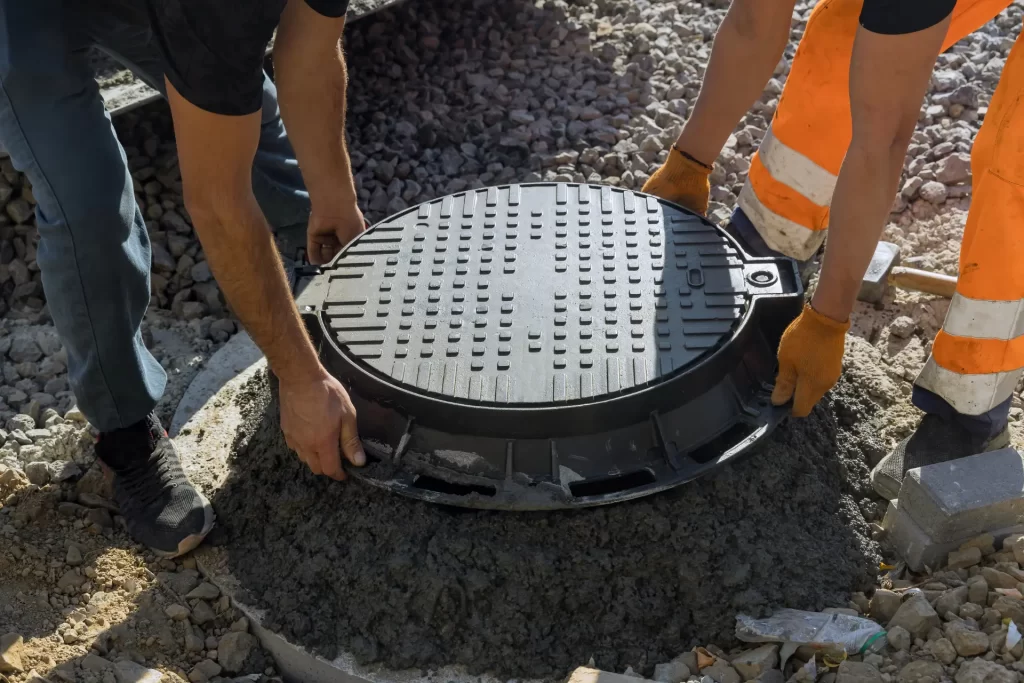
1. Property Owner
As the property owner, you are generally responsible for maintaining and repairing sewer drains within your property boundaries. If the blockage occurs in the main sewer line outside your property, the local water authority usually handles it..
2. Shared Property Resident
If you live in a shared property, such as a block of flats, responsibility for a sewer problem depends on the location of the blockage.
Blockages in communal areas or shared sewer lines are the responsibility of the property management, while blockages within individual units are the responsibility of the respective property owners.
3. Renting a Room or Property
As a tenant, you should inform your landlord or property manager about any sewer issues. The landlord is responsible for arranging and paying for the repair, as maintaining functional plumbing is part of their duty to provide a habitable living environment.
However, if the blockage is due to your negligence or misuse, you may be held responsible for the repair costs.
Who to Call When Your Sewage Pipe Is Blocked
Instead of risking failure and potential damage by attempting to fix a blocked sewer pipe yourself, call Neighbourhood Plumbing. Our experienced professionals will handle the problem quickly and efficiently, saving you time and hassle. Don’t wait—contact Neighbourhood Plumbing today for reliable service!
About the Author
From unclogging the toughest drains to repairing leaking toilets, Ricky is a seasoned plumber who has brought his craftmanship to homes across Melbourne. He is passionate about sharing plumbing tips just as much as he is about fixing your plumbing issues. So, when your taps or pipes begin leaking, you know who to call.
